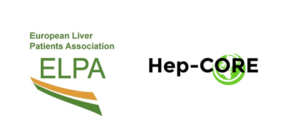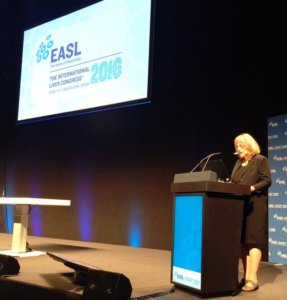 2016 thus far has been a year of remarkable progress in the fight against viral hepatitis. With the recent introduction of the first-ever Global Health Sector Strategy on Viral Hepatitis by the World Health Organization (WHO), stakeholders in all regions of the world are beginning to rally around the WHO goal of eliminating viral hepatitis as a public health threat by 2030.
2016 thus far has been a year of remarkable progress in the fight against viral hepatitis. With the recent introduction of the first-ever Global Health Sector Strategy on Viral Hepatitis by the World Health Organization (WHO), stakeholders in all regions of the world are beginning to rally around the WHO goal of eliminating viral hepatitis as a public health threat by 2030.
The strategy gives us a common set of strategic directions and priority actions based on the best available scientific evidence. It is thus an essential tool for countries to use in developing more focused responses to their viral hepatitis epidemics.

What is still lacking, however, is a mechanism for systematically assessing whether country-level efforts to eliminate viral hepatitis are improving over time.
The European Liver Patients Association (ELPA) looks forward to seeing the monitoring framework that WHO is in the process of developing. At the same time, we decided it was necessary to take immediate action because people are dying every day from complications of untreated viral hepatitis.
Hep-CORE study
ELPA commissioned the Hep-CORE study to help fill the monitoring void in Europe by documenting how ELPA member countries are addressing hepatitis B virus (HBV) and hepatitis C virus (HCV) prevention and treatment now, in mid-2016.
Only 14 of the 23 countries represented in the initial Hep-CORE analysis were reported to have viral hepatitis strategies.
The Hep-CORE study has enrolled one ELPA member group or coalition of groups from each country to complete a survey on key aspects of the response to HBV and HCV in their countries. Survey topics include viral hepatitis policies, disease monitoring, prevention, testing and treatment. Researcher Jeff Lazarus, a longtime friend of ELPA, worked closely with us and with an esteemed international study group to develop this very comprehensive survey.
In the three short weeks since data collection began, we have seen fantastic participation from ELPA member groups. Preliminary data on some topics are already in from 23 countries, and this information raises important concerns.
For example, despite a 2014 World Health Assembly resolution on viral hepatitis calling for all WHO Member States to develop and implement national strategies, only 14 of the 23 countries represented in the initial Hep-CORE analysis were reported to have viral hepatitis strategies. In three of these countries, the strategies do not take into account HBV, instead focusing solely on HCV.
We as hepatitis patients are ready, willing and able to help usher in a new era of accountability in regard to how countries move forward on the challenge of eliminating viral hepatitis.
Policy Gap
Other survey questions focus on harm reduction services for people who inject drugs (PWID), a group which is particularly vulnerable to viral hepatitis. While 18 of the 23 countries represented by survey respondents were said to have opioid substitution therapy available in all parts of their respective countries, only 7 of the 23 were reported to have needle and syringe programmes available in all parts of the country. This is a policy gap that may have dire implications for some European countries, given the major role of injecting practices in the viral hepatitis crisis.
While diverse types of stakeholders have important roles to play in working toward the elimination of viral hepatitis, from providing global policy leadership and epidemiological monitoring to delivering prevention and treatment services at the local level, patient groups are in a position to make a unique contribution in the coming months and years.
ELPA’s patient groups already have demonstrated their might in many ways, with their advocacy and expert advice fostering more enlightened government responses to HBV and HCV in Europe. With the Hep-CORE study, we are taking our involvement to the next level. We as hepatitis patients are ready, willing and able to help usher in a new era of accountability in regard to how countries move forward on the challenge of eliminating viral hepatitis.
We very much look forward to seeing the full results of the Hep-CORE survey reported later this year.
More information about Hep-CORE can be found in this press release from ELPA.
Hepatology, Medicine and Policy is now accepting submissions. For more information, visit: www.hmap.biomedcentral.com.
Comments